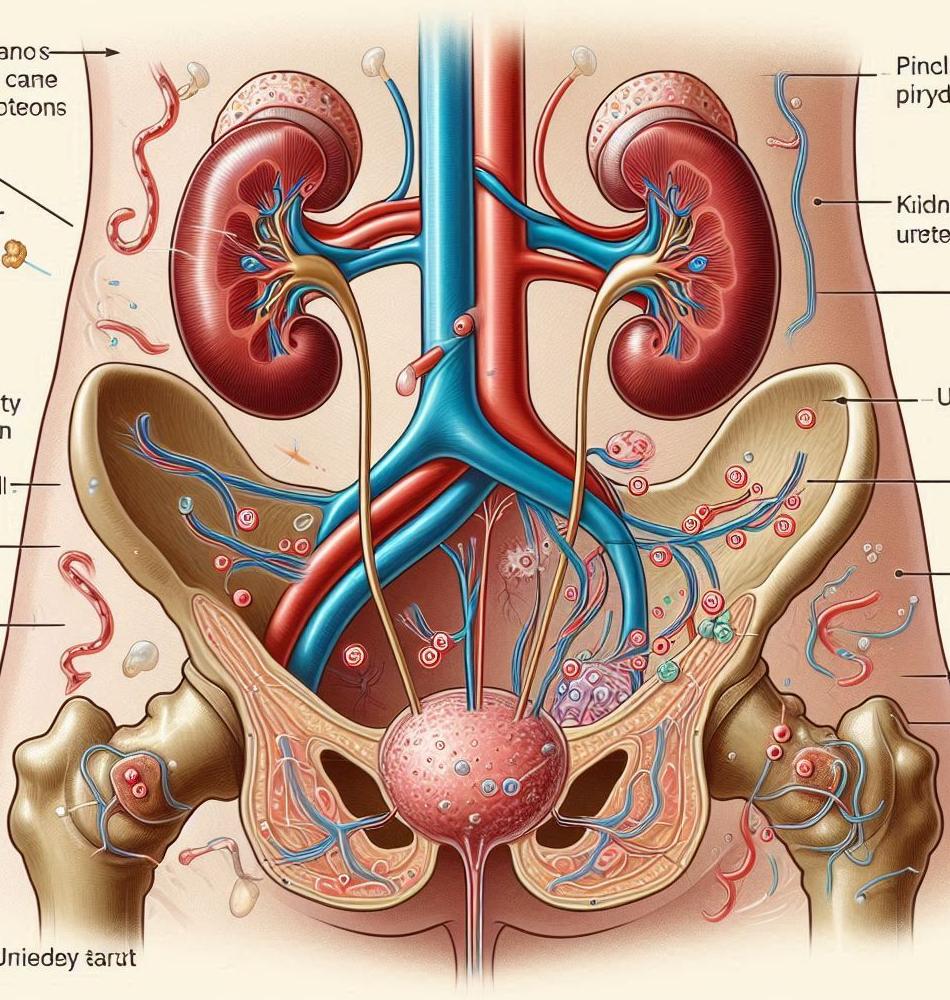Understanding Kidney Pain: Can It Come and Go? 🩺
Kidney pain can be elusive. One moment it feels as though a vice is tightening around your middle, and the next, it's as if nothing ever happened. This fluctuation can be perplexing, leading many to wonder if kidney pain can indeed come and go. Understanding this phenomenon is crucial in determining the underlying causes and appropriate care. Let's dive deep into the world of kidney pain and unravel the truth behind its intermittent nature.
What Causes Kidney Pain? 🚑
The kidneys play a vital role in filtering blood, regulating fluid balance, and maintaining electrolyte levels. When something goes awry in this delicate system, pain can ensue. Here are some common causes of kidney pain:
Kidney Stones 💎
One of the most infamous causes of kidney pain is kidney stones. These small, hard deposits form in the kidneys when certain substances become concentrated in the urine, leading to sharp pain that can indeed come and go as the stone shifts. The pain related to kidney stones is typically felt in the back or side and can be excruciating.
Infections 🦠
A urinary tract infection (UTI) can lead to kidney infections, known as pyelonephritis. Symptoms often include pain that may appear suddenly or intermittently, accompanied by fever and frequent urination. The bacteria causing this infection can result in pain that comes and goes as the infection ebbs and flows with treatment.
Polycystic Kidney Disease 🦠
This genetic disorder leads to the formation of cysts in the kidneys, which can cause varying degrees of pain depending on their size and location. Patients may find that pain fluctuates based on their physical activity or the cysts’ growth.
Kidney Injury 🚑
Any trauma to the kidneys, such as from an accident or fall, can trigger pain. The sensation might be constant at first, but as inflammation settles, it can fluctuate over time.
Symptoms Associated with Kidney Pain 🩺
Identifying kidney pain can sometimes be tricky, especially when it mimics discomfort from other areas. Common accompanying symptoms include:
1. Pain Location and Quality ⚡
- Sharp or dull ache in the lower back or flanks, which may come on suddenly.
2. Changes in Urination 💧
- Frequent urination or changes in urine color or odor, often present in cases of infection.
3. Flank Pain 🌡️
- Unilateral or bilateral pain might occur depending on which kidney is affected.
4. Fever and Chills 🌡️
- Infections may cause systemic symptoms such as fever.
5. Nausea and Vomiting 🤢
- These symptoms often accompany severe renal issues or blockages.
Is Your Kidney Pain Temporary or Chronic? 🔍
Understanding whether your kidney pain is temporary or chronic can help guide your next steps. Here’s what you need to know:
Chronic Kidney Pain 🌙
- If the pain persists over weeks or months without significant improvement, this may signify an underlying issue that requires further investigation.
Intermittent Kidney Pain ☝️
- Pain that comes and goes may be a sign of kidney stones, infections, or even certain lifestyle factors like diet and hydration status.
Diagnosis: How Is Kidney Pain Evaluated? 🩹
Diagnosing the source of kidney pain typically involves several key steps:
1. Medical History and Symptom Review 🩹
Your healthcare provider will ask detailed questions about your symptoms, their onset, duration, and any previous conditions you might have.
2. Physical Examination 🔍
A thorough examination will be performed, focusing on your abdomen, back, and urinary symptoms.
3. Diagnostic Testing 🩸
- Blood tests to check kidney function and infection markers.
- Urinalysis to identify signs of inflammation or infection.
- Imaging tests, like ultrasounds or CT scans, to visualize kidney structure.
Treatment Options for Kidney Pain 💊
Treatment for kidney pain fundamentally depends on the underlying cause. Here’s a breakdown:
1. Medication 🌟
- Over-the-counter pain relievers like ibuprofen or acetaminophen can be helpful for mild pain.
- Antibiotics are often prescribed for bacterial infections.
2. Lifestyle Changes 🌼
- Staying hydrated is crucial for kidney health and can help alleviate mild discomfort.
- Dietary adjustments may be necessary based on the specific cause, especially in cases of kidney stones.
3. Medical Procedures ⚙️
- In cases of severe kidney stones, procedures like lithotripsy may be necessary to break down stones.
- Surgery could be required for polycystic kidneys or significant obstructions.
Frequently Asked Questions About Kidney Pain 🤔
To further clarify kidney pain, here are some common questions:
- Can kidney pain occur on both sides at the same time?- Is kidney pain always accompanied by other symptoms such as fever?- How can you distinguish between muscle pain and kidney pain?- When should I seek emergency care for kidney pain?- What lifestyle changes can improve my kidney health?Conclusion: Managing Intermittent Kidney Pain 🌈
Kidney pain can indeed come and go, leaving many searching for answers. Whether it is due to stones, infections, or other underlying issues, understanding the nature of your symptoms is crucial for proper management. If you experience kidney pain that is persistent or accompanied by alarming symptoms, consulting a healthcare professional is wise. Proactive measures, such as lifestyle changes and timely evaluations, can make all the difference in ensuring optimal kidney health. Remember, your kidneys work hard for you - it’s time to reciprocate their efforts by taking care of them!
.png)






